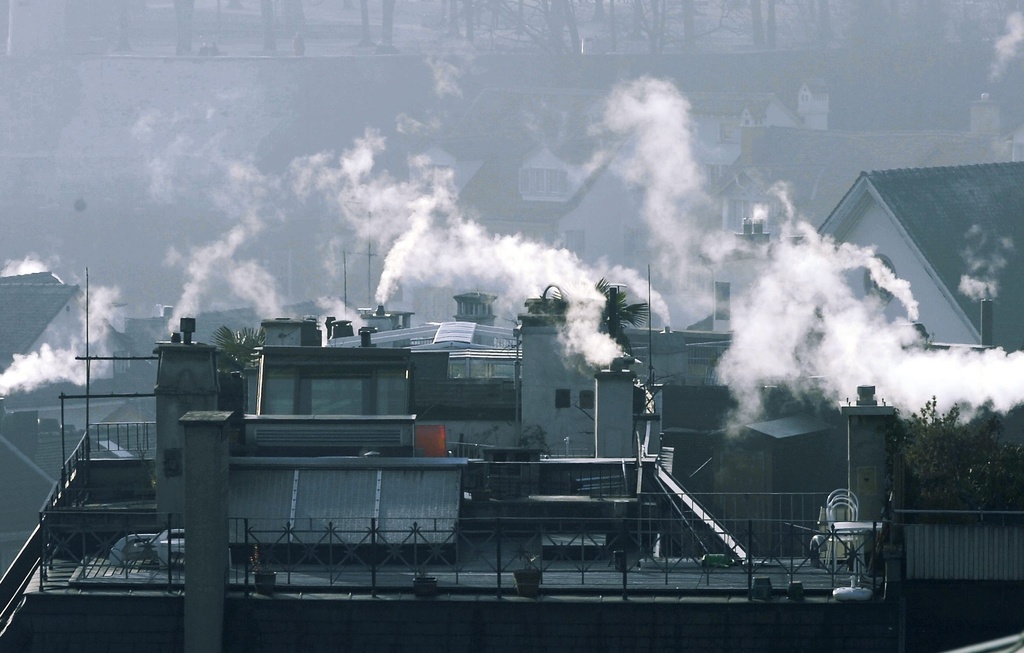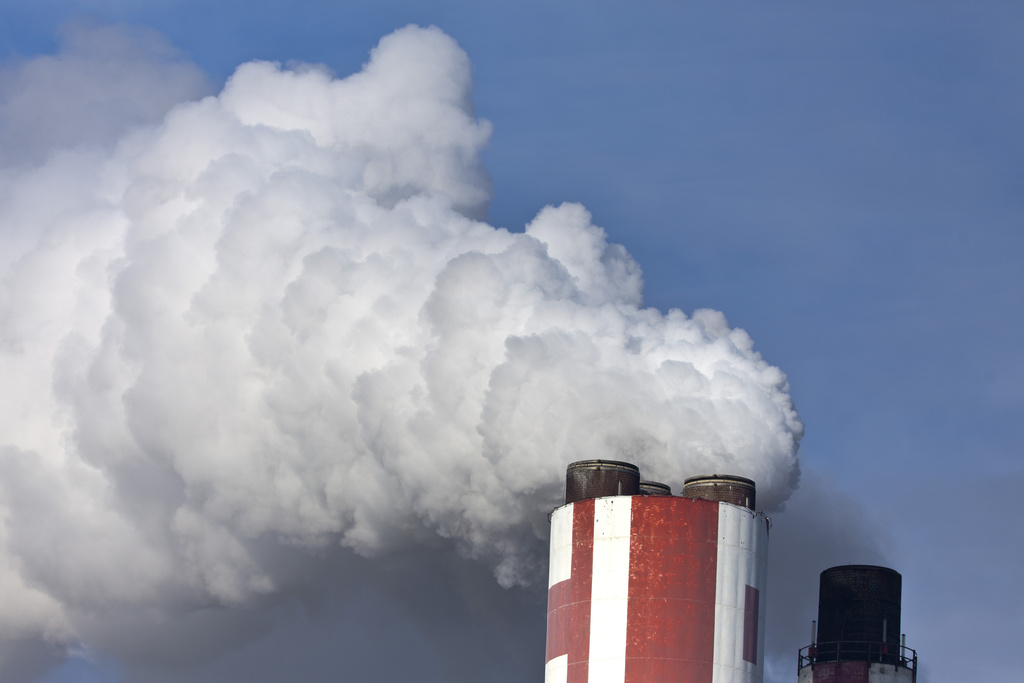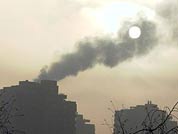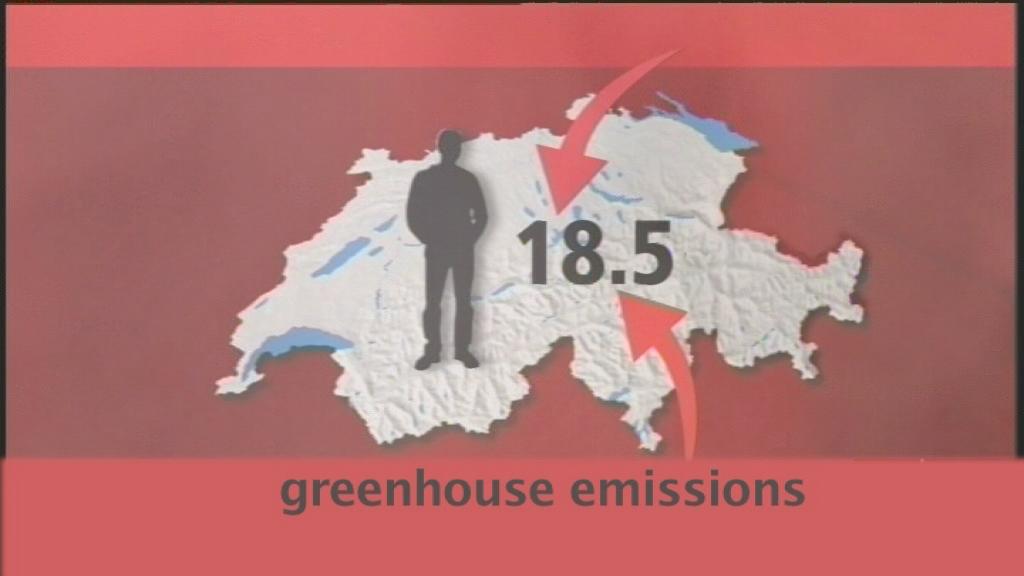Swiss lose ground over global warming

Environmental groups have slammed a government decision to compensate an increasing share of its greenhouse gas emissions outside Switzerland.
The groups say the move shows the obvious failure of the official environmental policy as Switzerland is not even able to compensate half of its carbon dioxide (CO2) output with domestic measures.
Karine Siegwart of the Federal Environment Office confirmed that Switzerland had lost its leading role as an eco-friendly country.
“Until 20 years ago we were at the forefront when it came to environmental matters,” she said.
“Switzerland was among the first countries to introduce catalytic converters and exhaust gas controls for cars. But these days we are barely more than average in Europe in some sectors.”
The 2011 Environment Report, published by the federal authorities last July, pointed out that some areas, notably quality of air and traffic emissions, had stagnated or worsened compared with the situation in the 1990s as fuel consumption rose by 15 per cent in the same period.
The higher fuel consumption brought with it an increase in CO2 emissions compromising to a large extent the efforts taken to reach the goals of the Kyoto Protocol. The international convention aims at an eight per cent reduction in pollution levels between 2008 and 2012.
Bruno Oberle, director of the Federal Environmental Office, said Switzerland had managed even to exceed the reduction targets for diesel, but failed when it came to cuts in petrol consumption.
“A marked population increase resulted in more cars on the roads – and we had no answers to respond to it,” Oberle said.
Parliament blocks
Four years ago, Switzerland introduced a tax on CO2 emissions caused by gas and heating oil. But a centre-right majority in parliament blocked similar measures for petrol and diesel. They would have paved the way for lower consumption levels while feeding a special fund to finance green climate projects.
Switzerland will most likely miss its environmental targets, set by the Kyoto Protocol, according to a recent government statement.
As a result, the authorities have to resort to a higher degree to a CO2 emissions trading scheme to compensate abroad for the pollution caused in Switzerland.
On January 17, the cabinet agreed on a new deal with the industry, allowing the purchase of emission certificates in emerging economies and third-world countries under the terms of the Climate Centime Foundation.
Outcry
“From an international point of view it’s a real scandal that Switzerland is not in a position to meet the Kyoto targets,” said Patrick Hofstetter, climate expert at WWF Switzerland.
He said the accord did not specify the CO2 reduction levels to be reached with domestic measures although the common understanding of the European Union and Switzerland is at least a 50 per cent quota.
“This is unacceptable for a country like Switzerland,” Hofstetter said. “Especially if you consider that the EU succeeds in meeting the goals according to the European environment agency.”
Germany, Britain and the Scandinavian countries even do better than the average of the 27-nation bloc.
“These countries have made a special effort to promote clean technologies and introduced a CO2 tax on fuel. Switzerland for its part is still among the European countries with the highest per capita consumption of heating oil and fuel. Just look at the price of petrol in Switzerland.”
Controversy
Experts agree there is nothing wrong in principle with the purchase of emission certificates. When fighting global warming, it does not matter where the CO2 output is reduced – be it in Switzerland or elsewhere.
Markus Ohndorf, a climate expert at the Federal Institute of Technology in Zurich, said there were two equally sustainable options.
“Some say it would make more sense to reduce CO2 levels at home to encourage the development of new technologies,” he said.
“Others argue cuts are achieved more easily abroad as an increasing part of industrial activity is moving to developing countries and emerging economies.”
What’s more, the cost for compensation schemes abroad are five times lower. The price for the certificates has dropped to its lowest level in the past few years.
Reservations
Environmental groups have reservations about certain emission certificates.
“We have strong doubts whether all the certificates really contribute towards a cut in CO2 emissions,” said Hofstetter.
“We understand that some of the compensation programmes, notably in India, do not at all stand up to the official criteria.”
As part of the United Nations convention on climate change, mechanisms have been introduced to verify and control emission certificates.
“Controls have been boosted not least as a result of pressure by environmental groups, Ohndorf added.
However, doubts persist among the expert community.
The Swiss government should have set precise quality criteria for the acquisition of compensation certificates, Hofstetter said.
“There is little we can do but hope that the Climate Centime Foundation chooses sustainable projects. Everything else would be tantamount to a reduction on paper and no true effort for the climate,” he added.
As a signatory to the Kyoto Protocol, Switzerland committed itself to reducing greenhouse gas emissions.
For the 2008-2012 period CO2 emissions must be cut by 8% compared with 1990 levels – that is 4.2 million tons annually.
Consolidated data will only be available in 2014, but Switzerland is not even likely to achieve a 50% emission reduction with domestic measures.
In 2008 Switzerland introduced a tax on CO2 tax on gas and heating oil. It amounts to a duty of SFr0.09 per litre.
To prevent the tax the business community agreed a deal with the government on a petrol charge of SFr0.015 per litre. The proceeds of the tax go towards the industry’s Climate Centime Foundation.
The organisation finances projects in Switzerland and abroad aimed at reducing the output of greenhouse gases.
Sustainable cuts in CO2 gas emissions must be achieved with measures in the polluting country according to the Kyoto Protocol.
The international accord also foresees a series of flexible compensation schemes with other countries measures to facilitate the fight against global warming.
Emissions trading is a market-based approach to help reduce the CO2 output in development countries and emerging economies. A UN body oversees the compatibility of the certificates with the aims of the Kyoto Protocol.
(Adapted from Italian by Urs Geiser)

In compliance with the JTI standards
More: SWI swissinfo.ch certified by the Journalism Trust Initiative








You can find an overview of ongoing debates with our journalists here. Please join us!
If you want to start a conversation about a topic raised in this article or want to report factual errors, email us at english@swissinfo.ch.